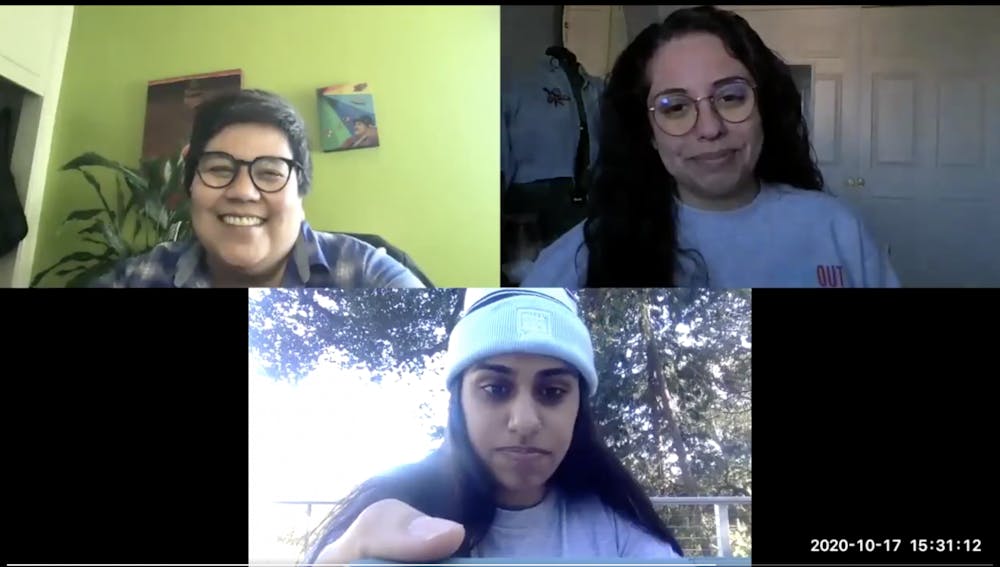As Election Day approached, the American University community took action to get out the vote. Motivated by the pandemic, many worked the polls for the first time, while others worked on campaigns across the country.
Due to the coronavirus, there was a fear of a lack of poll workers this year, but many turned out to work at the polls for the first time.
Areeba Yasin, a junior in the College of Arts and Sciences, served as the director of communications for Democrat Georgette Gomez’s congressional campaign in California’s 53rd congressional district. Yasin’s job included social media management, writing talking points, filling out surveys for PACs and coordinating endorsements.
While Yasin is not from the district that Gomez hoped to represent, she said that she was passionate about the campaign because it aligned with her values.
“It's really important to have representatives that are truly representative of our population,” Yasin said. “I think in general, politics is just so white and cis[gender] and male, and I think it's just so, so important to make sure that in order to have an inclusive country as a whole, it's really important to have inclusive representation in our government.”
The Associated Press declared that Democrat Sara Jacobs, Gomez’s opponent, won the race.
Jason Kennedy, AU’s director of data analytics and technology, decided to become a poll worker after reading about staffing concerns this year due to the coronavirus pandemic. According to the Pew Research Center, the majority of poll workers in the 2018 election were over 60 years old, which falls into the at-risk category for COVID-19.
“I'm a reasonably young, reasonably healthy person, and so this is a thing that I could do to participate and just make sure that those who wanted to go vote could,” Kennedy said.
Candace Simpson, a paralegal in AU’s office of the general counsel, also said that the pandemic motivated her to sign up to be a poll worker this year.
“I wanted to see how I could contribute to making sure that everyone has an opportunity to vote in a place that's convenient for them,” Simpson said.
Both Simpson and Kennedy said that the University’s decision to close on Election Day was a relief since they did not have to use vacation days to take the day off. In addition to being a poll worker, Kennedy helped to set up his polling place on Nov. 2, using one of his five furlough days.
Emily Doherty, a senior in the School of Communication, decided to become a poll worker after seeing information about the need for poll workers on social media.
Doherty worked as a registration clerk at a vote center in Ward 3 on Election Day to check people in when they arrived and make sure the process ran efficiently.
“They're very much focused on trying to get people in and out as fast as possible, especially with COVID,” Doherty said. “I guess they don't want to have too many people lingering around for a while.”
While Yasin was not physically present in Gomez’s district on Election Day, she phonebanked during the day to make sure voters turned out. In addition, she continued creating social media content for the campaign until polls closed.
For Simpson, she said her job as a poll worker is a simple, direct way to make a difference.
“I feel like I'm doing a small part of supporting everyone's right to vote and making sure that everyone's voice is heard,” Simpson said.





